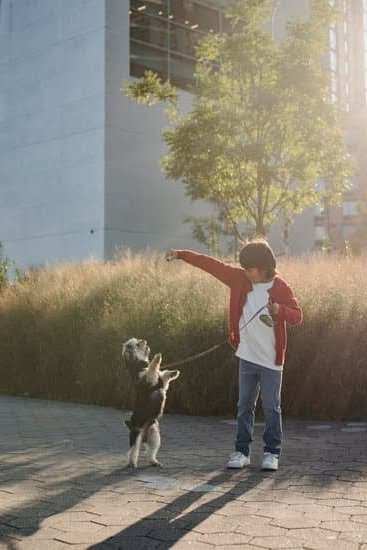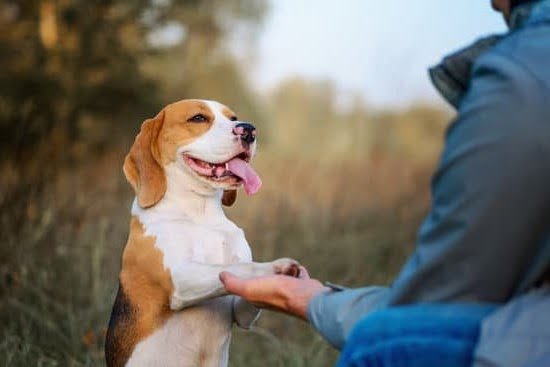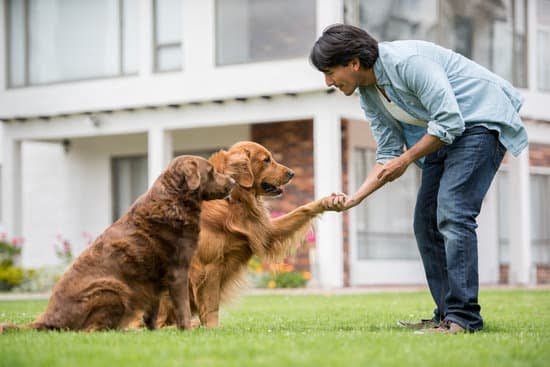Why Is My Dog Not Potty Trained Anymore
There could be any number of reasons why your dog has stopped being potty trained. One common reason is that the dog has become bored with the same old routine and has started to rebel. If your dog has always been house-trained, but is now having accidents in the house, it could be a sign that he is trying to tell you something. Perhaps he is not getting enough exercise, or he is not being properly stimulated. Dogs need plenty of exercise and plenty of interesting things to do in order to stay healthy and happy. If your dog is not getting enough of either, he may start to soil the house in an effort to get your attention.
Another common reason for potty training regression is a change in the family dynamic. If a baby or another pet has recently been added to the household, the dog may start to feel overwhelmed or threatened. The dog may feel that he is no longer the center of attention, and may start to act out in order to regain his position. If you think that a change in the family dynamic may be the cause of your dog’s potty training regression, try to spend some extra time with him and make sure that he feels loved and important.
If you cannot determine the cause of your dog’s potty training regression, it is best to consult with a professional trainer or behaviorist. They will be able to help you identify the root of the problem and will provide you with the necessary tools to correct it.
How To Re Potty Train An Adult Dog
There comes a time in every dog’s life when they must be potty trained. For adult dogs, this process can be a little more difficult than for puppies, but it can be done with a bit of patience and perseverance.
The first step is to identify the times of day when your dog is most likely to need to go to the bathroom. This may vary depending on the individual dog, but typically, dogs need to go shortly after eating, drinking, and waking up from a nap.
Once you’ve identified these times, begin taking your dog outside to the bathroom at regular intervals. If your dog goes to the bathroom outside, praise them and give them a treat. If they don’t go, take them back inside and try again in a few minutes.
If your dog has an accident inside, don’t scold them. Simply clean it up and continue trying to take them outside as often as possible.
It may take a while, but eventually your dog will get the hang of it and will be able to hold their bladder for longer periods of time. Just be patient and keep rewarding them for going to the bathroom in the correct spot.
Are Rescue Dogs Potty Trained
One of the many benefits of adopting a rescue dog is that they often come potty trained. But does this mean that all rescue dogs are automatically potty trained The answer is no.
While there are some rescue dogs who are potty trained, it is important to note that not all rescue dogs are the same. Just like any other dog, some rescue dogs may be more or less potty trained than others.
In general, though, rescue dogs are more likely to be potty trained than dogs who are bought from a breeder or pet store. This is because many rescue dogs are already house trained when they are adopted.
If you are interested in adopting a rescue dog, be sure to ask the shelter or rescue group about the dog’s potty training status. If the dog is not yet potty trained, they may be able to provide you with some tips on how to train the dog yourself.
In most cases, though, rescue dogs are already potty trained and will not require much, if any, training on your part. This makes adopting a rescue dog a great option for those who want a dog but do not have the time or patience to train a dog themselves.
How To Night.Potty Train A Dog
There are a few things you will need before you get started. These items are:
– treats
– a leash
– a collar
– a designated potty spot
The first step is to get your dog comfortable with wearing a collar and leash. Put the collar and leash on your dog and take him for a walk. When your dog is comfortable with this, begin to take him to your designated potty spot. When your dog does his business, give him a treat. Do this consistently and your dog will soon begin to associate the leash and collar with going potty.
The next step is to begin taking your dog to the potty spot at night. When your dog wakes up in the middle of the night, take him to the potty spot and give him a treat when he does his business. Do this every time your dog wakes up in the middle of the night. Within a few weeks, your dog will begin to go potty in the designated spot without needing to be taken there.
How To Potty Train A Year Old Dog
If you are reading this, you likely have an adorable, but perhaps challenging, one-year-old dog at home. Congratulations on making it through the first year of your dog’s life – it can be a challenging time for both of you! Now that your dog is a year old, it is time to start potty training.
There are a few things to keep in mind when potty training a one-year-old dog. First, dogs at this age are still learning about the world and what is expected of them. So, be patient and consistent with your training. Second, one-year-olds are usually quite active and love to explore, so make sure you provide plenty of opportunities for your dog to relieve himself outdoors. Finally, remember that accidents will happen, so be prepared to clean up any messes.
Here are a few tips to help you get started:
1. Start by teaching your dog basic commands such as “sit” and “stay.” This will help you keep your dog under control and make potty training easier.
2. Establish a routine for your dog and stick to it as closely as possible. This means taking your dog outside to pee and poop at the same times each day.
3. If your dog does have an accident in the house, immediately clean it up with a pet-safe cleaning product. Do not punish your dog for accidents, as this will only make potty training more difficult.
4. If your dog is going to be left alone for a few hours, put him in a crate or kennel. This will help prevent him from having any accidents in the house.
5. Reward your dog for good behavior. Positive reinforcement is key in potty training a one-year-old dog.
With patience and consistency, you can successfully potty train your one-year-old dog. Just remember to be patient and to keep a positive attitude. Good luck!

Welcome to the blog! I am a professional dog trainer and have been working with dogs for many years. In this blog, I will be discussing various topics related to dog training, including tips, tricks, and advice. I hope you find this information helpful and informative. Thanks for reading!





